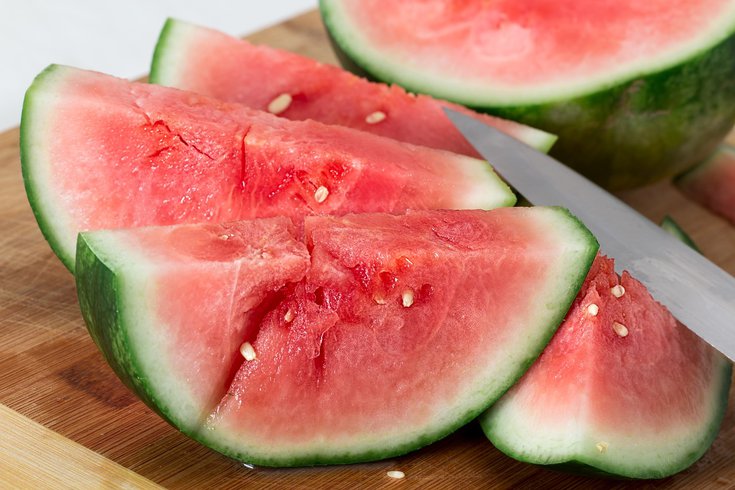
May 16, 2023
 Steve Buissinne/Pixabay
Steve Buissinne/Pixabay
While more research is needed to fully understand how making watermelon a regular part of your diet is good for your health, the experts say the superfood offers many potential health benefits.
When you think of cool, refreshing summer foods, a juicy watermelon slice surely comes to mind. But did you know this particular fruit is a superfood?
"We think of watermelon as a fun, seasonal food for barbecues and the beach, but it's also really good for you," says Cleveland Clinic registered dietitian Lara Whitson. "It's low in calories, keeps you hydrated and provides many other nutrients that can help you maintain good health."
According to the U.S. Department of Agriculture, one cup of diced watermelon is only 46 calories. It contains no fat, just 1 mg of sodium, 9 grams of sugar, 10 mg of calcium, 12 mg of vitamin C, 15 mg of magnesium, 170 mg of potassium and 139 grams of water.
The potassium in the watermelon helps support nerve and muscle function, and antioxidants like lycopene and cucurbitacin E help ward off disease. (Lycopene also gives watermelon its red color.) Watermelon is also a good source of vitamin A and is Heart-Check certified by the American Heart Association.
All parts of the watermelon are good for us to eat. The seeds are filled with minerals and nutrients like magnesium, iron, healthy fats and zinc, and the watermelon rind contains less sugar and more fiber than the flesh. It also contains citrulline, an amino acid that helps the body get rid of toxic substances like ammonia.
Here are eight things the superfood does for our health, according to experts at Cleveland Clinic, Healthline, and Mayo Clinic:
1. Prevents dehydration. Because watermelon is 92% water, it is a quick and simple treat that rehydrates your body. Scientists say that if you add a little bit of salt to watermelon after a workout, it can help restore the electrolytes you lost through sweat.
2. Helps maintain a healthy weight. Choosing watermelon as your go-to snack will keep you away from highly processed foods that are filled with sugar and fat. Watermelon also makes you feel full longer; one study found that eating watermelon was associated with lower body weight, body mass index and waist-to-hip ratio. It also reduced the blood pressure of study participants.
3. Has disease-fighting qualities. Chock-full of antioxidants, watermelon has been found to reduce the risk of chronic diseases such as diabetes, obesity, cardiovascular disease and cancer. It can help relax blood vessels and improve blood flow. The vitamin C in watermelon also keeps the immune system in top fighting form. Research has shown that the lycopene in watermelon may lower the risk of developing heart disease or dying prematurely from heart disease.
4. Protects eyes. The antioxidants in watermelon may also prevent or delay the development of cataracts and reduce the risk of age-related macular degeneration, which can lead to blindness.
5. Keeps skin healthy. The vitamin C in watermelon helps your body produce collagen which is important for healthy cells. Collagen keeps your skin strong and flexible, slowing down age-related damage. One study found that a higher intake of vitamin C from food or supplements may decrease the chances of developing wrinkles and dry skin. The vitamin A in watermelon also helps repair skin cells and keeps skin from drying out.
6. Recovers muscle. After a strenuous workout, a watermelon snack can help your muscles recover faster. Citrulline in the watermelon reduces lactate buildup in the body, which can lead to muscle soreness.
7. Promotes good gut bacteria. The plant compounds, or polyphenols, in watermelon improve digestion and promote the growth of good gut bacteria, which support the immune system.
8. Controls blood sugar. Because it is low in sugar, eating watermelon instead of a sugary treat can help with blood sugar spikes that can occur with diabetes.
Experts caution that, as with all food, a healthy balance is important. Eating two servings of watermelon a day is safe, but avoid any fad diets where you only eat watermelon because you won't be getting other important nutrients.
People prone to migraine headaches, pollen allergies and digestive disorders like irritable bowel syndrome may want to limit their consumption of watermelon. People with diabetes should also eat watermelon in moderation because it does have natural sugars. Always talk to your doctor before making any substantial changes to your diet.